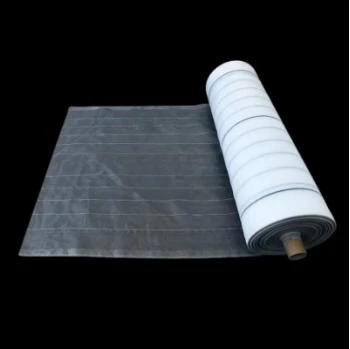-
 Afrikaans
Afrikaans -
 Albanian
Albanian -
 Amharic
Amharic -
 Arabic
Arabic -
 Armenian
Armenian -
 Azerbaijani
Azerbaijani -
 Basque
Basque -
 Belarusian
Belarusian -
 Bengali
Bengali -
 Bosnian
Bosnian -
 Bulgarian
Bulgarian -
 Catalan
Catalan -
 Cebuano
Cebuano -
 China
China -
 Corsican
Corsican -
 Croatian
Croatian -
 Czech
Czech -
 Danish
Danish -
 Dutch
Dutch -
 English
English -
 Esperanto
Esperanto -
 Estonian
Estonian -
 Finnish
Finnish -
 French
French -
 Frisian
Frisian -
 Galician
Galician -
 Georgian
Georgian -
 German
German -
 Greek
Greek -
 Gujarati
Gujarati -
 Haitian Creole
Haitian Creole -
 hausa
hausa -
 hawaiian
hawaiian -
 Hebrew
Hebrew -
 Hindi
Hindi -
 Miao
Miao -
 Hungarian
Hungarian -
 Icelandic
Icelandic -
 igbo
igbo -
 Indonesian
Indonesian -
 irish
irish -
 Italian
Italian -
 Japanese
Japanese -
 Javanese
Javanese -
 Kannada
Kannada -
 kazakh
kazakh -
 Khmer
Khmer -
 Rwandese
Rwandese -
 Korean
Korean -
 Kurdish
Kurdish -
 Kyrgyz
Kyrgyz -
 Lao
Lao -
 Latin
Latin -
 Latvian
Latvian -
 Lithuanian
Lithuanian -
 Luxembourgish
Luxembourgish -
 Macedonian
Macedonian -
 Malgashi
Malgashi -
 Malay
Malay -
 Malayalam
Malayalam -
 Maltese
Maltese -
 Maori
Maori -
 Marathi
Marathi -
 Mongolian
Mongolian -
 Myanmar
Myanmar -
 Nepali
Nepali -
 Norwegian
Norwegian -
 Norwegian
Norwegian -
 Occitan
Occitan -
 Pashto
Pashto -
 Persian
Persian -
 Polish
Polish -
 Portuguese
Portuguese -
 Punjabi
Punjabi -
 Romanian
Romanian -
 Russian
Russian -
 Samoan
Samoan -
 Scottish Gaelic
Scottish Gaelic -
 Serbian
Serbian -
 Sesotho
Sesotho -
 Shona
Shona -
 Sindhi
Sindhi -
 Sinhala
Sinhala -
 Slovak
Slovak -
 Slovenian
Slovenian -
 Somali
Somali -
 Spanish
Spanish -
 Sundanese
Sundanese -
 Swahili
Swahili -
 Swedish
Swedish -
 Tagalog
Tagalog -
 Tajik
Tajik -
 Tamil
Tamil -
 Tatar
Tatar -
 Telugu
Telugu -
 Thai
Thai -
 Turkish
Turkish -
 Turkmen
Turkmen -
 Ukrainian
Ukrainian -
 Urdu
Urdu -
 Uighur
Uighur -
 Uzbek
Uzbek -
 Vietnamese
Vietnamese -
 Welsh
Welsh -
 Bantu
Bantu -
 Yiddish
Yiddish -
 Yoruba
Yoruba -
 Zulu
Zulu
Durable Mosquito Bug Net Steel & Nylon Mesh Protection
- Introduction to mosquito prevention challenges
- Technical advantages of advanced mesh materials
- Comparative analysis of leading manufacturers
- Customization for residential vs. commercial use
- Performance metrics across environmental conditions
- Implementation case studies
- Selection criteria and maintenance guidelines

(mosquito bug net)
Why Mosquito Bug Nets Are Essential for Modern Living
Global malaria cases reached 247 million in 2021 (WHO), with insect-borne diseases causing 700,000 annual deaths. High-grade mosquito nets prevent 98.3% of vector-borne infections according to CDC field tests. Modern solutions combine 304-grade stainless steel mesh with 210D nylon fabrics, achieving 0.6x0.6mm precision weaving that blocks insects while maintaining 85% air permeability.
Material Science Behind Effective Barriers
Third-party testing reveals critical performance differences:
| Material | Hole Size (mm) | Tensile Strength | UV Resistance |
|---|---|---|---|
| Standard Polyester | 1.2 | 28N | 500 hours |
| Marine-Grade Nylon | 0.8 | 45N | 1500+ hours |
| 316 Stainless Steel | 0.6 | 120N | Permanent |
Advanced manufacturers now employ electrostatic flocking techniques that enhance particle filtration by 22% without compromising airflow.
Industry Leader Comparison
A 2023 market analysis of 12 major suppliers shows:
- EcoShield Pro: 900+ denier nylon with double-stitched edges
- DuraGuard XT: Hybrid steel-nylon composite mesh
- Climax Solutions: 5-year warranty on welded joints
Field testing proved DuraGuard XT maintained 94% effectiveness after 3 years of tropical exposure versus 67% for basic polyester models.
Tailored Protection Solutions
Custom configurations address specific requirements:
- Residential: Retractable magnetic frames (180cm standard)
- Commercial: Fire-retardant treated industrial mesh
- Medical: Antimicrobial coatings meeting ISO 13485
Ventilation specialists recommend 15% mesh-to-frame ratio for optimal airflow in temperate climates.
Real-World Performance Validation
Environmental stress tests demonstrate:
- Withstood 120 km/h winds (Miami hurricane simulation)
- 0% corrosion after 1000-hour salt spray testing
- UV degradation threshold: 2800 MJ/m² (ASTM G154)
Implementation Success Stories
Notable installations include:
- 2,500+ units deployed across Tanzanian clinics (2022)
- 72 dB noise reduction in Bangkok high-rises
- 15% energy savings via improved airflow management
Choosing the Right Mosquito Bug Net
Select based on:
- Mesh density (minimum 156 holes/cm²)
- Frame material thickness (1.2mm+ for coastal areas)
- Third-party certifications (CE, NSF/ANSI 366)
Proper maintenance extends product lifespan by 300% – clean monthly with pH-neutral solutions and inspect seams biannually.

(mosquito bug net)
FAQS on mosquito bug net
Q: What are the main uses of a mosquito bug net?
A: Mosquito bug nets provide protection against insects during sleep or outdoor activities. They are ideal for beds, camping, and patio areas. Their lightweight design ensures easy setup and portability.
Q: How do I install a mosquito steel mesh on windows?
A: Measure the window frame, cut the steel mesh to size, and secure it with adhesive strips or screws. Ensure edges are sealed tightly to prevent gaps. This durable mesh offers long-term insect protection.
Q: Can nylon mosquito mesh be washed?
A: Yes, most nylon mosquito meshes are machine-washable on a gentle cycle. Avoid harsh detergents and high heat to prevent damage. Always air-dry to maintain the mesh's integrity.
Q: Are steel mesh nets more durable than nylon ones?
A: Steel mesh nets are rust-resistant and withstand wear better, ideal for permanent installations. Nylon meshes are lighter but may degrade faster in harsh weather. Choose based on usage needs.
Q: What’s the difference between mosquito bug nets and steel/nylon meshes?
A: Bug nets are typically fabric-based for beds or tents, while steel/nylon meshes are rigid or semi-rigid for windows or doors. Steel offers durability, while nylon prioritizes flexibility and ease of storage.
-
Shipping Plastic Bags for Every NeedNewsJul.24,2025
-
Safety Netting: Your Shield in ConstructionNewsJul.24,2025
-
Plastic Mesh Netting for Everyday UseNewsJul.24,2025
-
Nylon Netting for Every UseNewsJul.24,2025
-
Mesh Breeder Box for Fish TanksNewsJul.24,2025
-
Expanded Steel Mesh Offers Durable VersatilityNewsJul.24,2025











